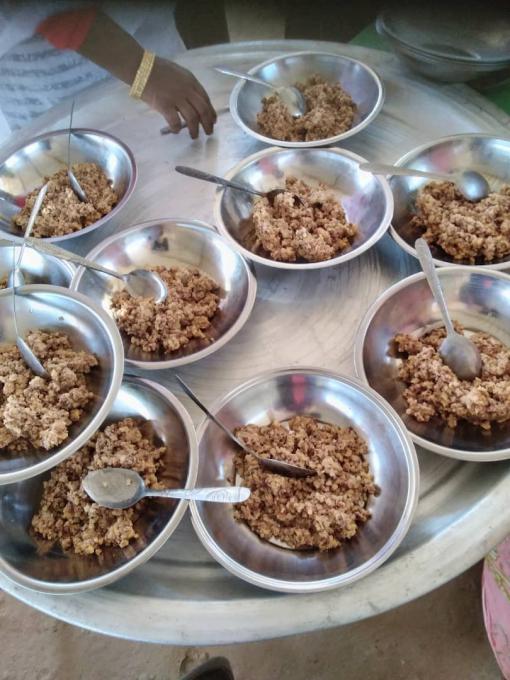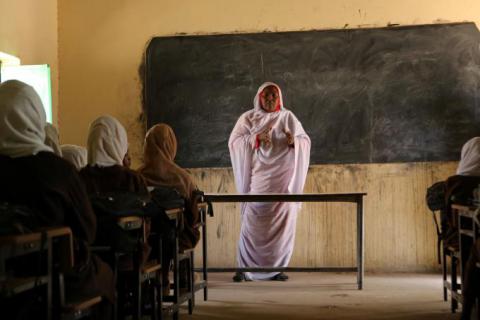SCHOOL MEALS: 117 GIRLS RETURN TO EDUCATION IN ONE JEBEL AULIA SCHOOL
“My dream since childhood was to be a teacher. I had an Arabic teacher named Somaya, and I loved her very much and wanted to be just like her,” started Fatima Adam, Al Shahid Al Daw School’s vice-principal and school meals supervisor. “I have been an Arabic teacher in this school since 2006.”
School meals were introduced last year as part of the World Food Programme’s School Meal Project. Before that, some students would go home at lunchtime to have their breakfast meal.
“A lot of the time students would return without eating because their parents are not home and there was no food at home,” stated Fatima. “Sometimes, as teachers, we would share our lunch with the students – but we couldn’t do it on a daily basis. The school knew a lot of students couldn’t afford to buy a meal, so we were looking for alternatives – like charities – to support us with that.”
For many hungry children, a school meal may be their only nutritious meal during the day – without it, they lose the protection of vital vitamins and micronutrients. The project targets over 170 in Jebel Aulia locality in Khartoum State by providing on-site meals.
The school meal in Al Shahid Al Daw consists of maize, legumes (lentils), vegetable oil, iodized salt, and nutritional supplements, measured accordingly to the necessary ration of each student.
“As much as the school meal is fun for them to have and beneficial, it resulted in the increase of enrolments in school,” stated Fatima.
Due to the economic situation in Sudan, combined with school closures due to COVID-19, and a hunger crisis throughout the country, the unaffordability of meals and school expenses is a factor in thousands of children not returning to school.
“Last year, we had 895 students, and after the school meal was introduced, we now have 1,063 students because of the provision of the meal and the support of the organization [Save the Children] in improving the school’s environment,” continued Fatima.

Although Fatima stresses that this has overcrowded the school, it is considered a positive step towards decreasing levels of absenteeism. Missing out on education happens especially among girls, as they are likely to be required to spend more time looking after younger siblings and both are required to try to help in generating additional income by participating in fringe-economic activities.
“After this project, there were 117 girls in the 8th grade who were home and out of school – but they returned,” says Fatima. “We had to create an additional class for them.”
Save the Children has been partnering with the WFP and the Government of Sudan to deliver school meals to children across Sudan, not just Khartoum. School feeding programs play a critical role in developing future generations and reducing disparities by facilitating access to education and building back better following the COVID-19 pandemic.
 Sudan
Sudan 